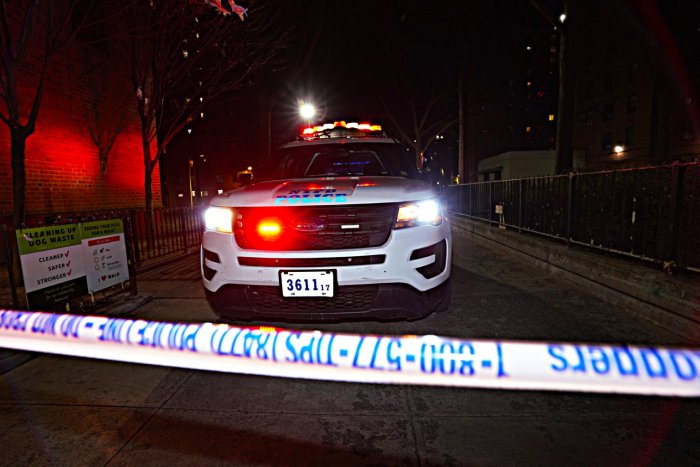A week ago, President Bush drew parallels between the Vietnam War’s aftermath and what he said would happen if the U.S. pulls out of Iraq.
“Here at home, some can argue our withdrawal from Vietnam carried no price to American credibility, but the terrorists see things differently,” he said.
Most Americans see things differently, too — from Bush that is. A clear majority view the war as a mistake and support withdrawing our troops.
The war’s physical cost has been tremendous. Last week, the New York Times ran Nina Berman’s wrenching photographs of G.I.s wounded and mutilated beyond recognition in Iraq. These are photos the Bush administration would rather we not see — just like the returning coffins they hide from our view.
And there is the financial cost. Earlier this month, MoveOn.org held a press conference in City Hall Park to highlight the conflict’s staggering toll. As of Aug. 16, the war’s price tag for New York City residents alone was $40.91 billion.
Nearly half a trillion dollars has been poured into the war — almost 10 times more than the Bush administration estimated four years ago. Joseph Stiglitz, a Nobel laureate, and Linda Bilmes, of Harvard, have estimated a total price tag on the war of $2 trillion when one factors in drawdown costs, increased oil prices and the long-term healthcare needs of U.S. soldiers. Last month, Congress approved an additional $100 billion in war funds.
The total dollar estimate does not count the cost of enraging the world’s Muslims, alienating our allies, sapping the strength of the U.S. military or eroding our credibility around the world.
Half a trillion dollars spent to date could have been used toward funding health insurance for millions of children, millions of college scholarships and Head Start spots for children, thousands of elementary school teachers and police officers, hundreds of thousands of affordable housing units, the implementation of the Kyoto Protocol or the full implementation of the recommendations of the 9/11 Commission.
It’s Iraq, however, that’s paying the most — in terms of suffering. At the MoveOn press conference, Nesreen, a Baghdad schoolteacher, told of the hardships Iraqis face. One of just 133 Iraqis to receive a U.S. visa this year, she uses only her first name for safety, since she works with Americans.
Baghdad’s infrastructure is in a shambles, she said. Her school was burned and teachers are being targeted, she said.
“You call it a war, but it is an occupation,” Nesreen stated. “You say you are helping the Iraqi people, but you have given us hell instead. You say you have a democracy — but your leaders don’t listen to you. You have to help.”
Yes, Iraq will see violence when we leave. But it is already incredibly violent now. MoveOn members chanted a mantra at the press conference — Iraq is “an unwinnable religious civil war.” That all seems to be the case. Vietnam proved unwinnable, too — no matter what Bush may say. Let’s learn from history. It’s time.


































